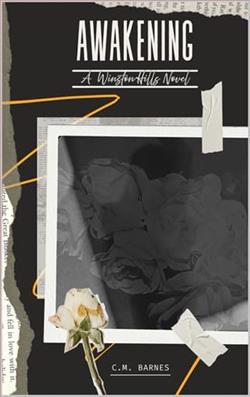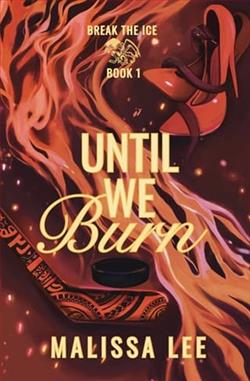Page 7 of Nine Lives
“Never mind,” Nancy said, pouring herself a glass of wine now. “It just looked suspicious. I overanalyzed.”
“What did you think it was, Mom?” Emma asked, her voice verging on disdainful. Matthew had noticed that as Emma had gotten older she’d become more and more critical of her mother, as though she were starting to recognize some of the more erratic nuances of Nancy’s personality. It was not a comforting thought.
Joshua entered the kitchen, crying, a pink welt raising up along his cheek. Matthew went to look for Alex. The samurai sword had been a huge mistake.
8
Friday, September 16, 7:00 a.m.
Early September was the best time of year, by far. It was still summer, the normally cold Atlantic Ocean was at its warmest, and the tourists—the ones with brats, anyway—had gone for good. The stretch of sandy beach that led from the Windward Resort up to the stone jetty was practically unoccupied (one lone figure crouched near the tide pools) as Frank Hopkins took his morning walk about half an hour after sunrise. The sky was the sickly color of fish chowder, and there was mist hovering above the sand. He wore shorts and topsiders but had pulled an old cotton sweater on over his polo shirt. Unless he was mistaken, mornings had been a little bit cold lately. Or maybe his bones were getting cold. Getting old and getting cold, he rhymed to himself, then stopped for a moment to have a coughing fit.
After he was moving again, he nearly stepped on the carcass of a seagull half covered by the shifting sand. There was part of a wing, an exposed spine, what looked like its beak, open slightly as though it were cawing. His stomach flipped a little, which probably had more to do with that glass of brandy he’d drunk in his room last night after closing time. He’d known it was a mistake but couldn’t help himself, propped up in his bed on four or five pillows, trying to remember what it was that Shelly had told him in the lounge, something about her husband wanting to move to Florida. She wasn’t happy about it, that much he knew, but the sound system in the lounge was getting louder and louder these days and he didn’t catch everything she’d said. He hoped that Shelly, who’d been tending bar at the Windward for over a decade, wouldn’t leave, but he supposed it was inevitable. Bartenders come and go. Just like wives, and just like the years. Still, losing Shelly would hurt. Spending every evening with her—even from opposite sides of a bar—was the best part of his day.
He looked up to see how close he was to the jetty, where he would turn around and walk back. Even though the sun was hidden behind an expanse of hazy cloud cover, he found himself squinting at the brightness of the sky. He stumbled slightly. What had he just been thinking about? Shelly leaving him? Or had he been thinking about Gloria, his second wife, and how when she’d left him she’d done it by simply driving away one morning and never coming back? Lately, his memories were increasingly jumbled; events that happened in his childhood suddenly popped into his mind as though they’d happened the day before, and things that were happening now, like the stalled renovations on the veranda, seemed like they were taking place in some hazy past life that he couldn’t quite remember.
How had he gotten so old so fast? He really needed to cut down on his drinking. Tonight he’d tell Gloria that for every drink he had—every real drink—he’d also drink a seltzer water. That would be a good thing. Then maybe he wouldn’t wake up in the middle of the night, his mouth so dry that his tongue felt like an unused sponge. Yeah, tonight he’d start drinking more seltzer water. And no brandy while he lay in bed. And he’d get whatever the daily fish was instead of the cheeseburger. That would impress Gloria—no, not Gloria, Shelly!—and maybe she wouldn’t leave him after all. He liked the way she lowered her voice when she talked with him—it was very intimate, even though he didn’t always understand what it was she was saying to him.
He was nearly at the jetty when the disk of the sun appeared in the sky, the mist starting to burn off. His eye went to the barnacled rock he always superstitiously touched before turning back. The shape of the rock made him think of a child curled into herself, her head tucked between her thighs, her hair the black seaweed that clung to the rock at the high-tide line. The rock, like the beach, had stayed virtually unchanged in Frank’s long life. What was surprising on this particular morning was the presence of a single white envelope resting at the top of the rock. The envelope was held in place by a perfectly round gray stone, ringed in white. Frank picked the envelope up, holding it at just the right length from his failing eyes so that he could read the mailing label. It had his name and address on it. A strange sense of unreality passed over him. Why was there a letter for him at the jetty? Was he dreaming? If so, it would make sense. He dreamed the same dreams over and over, and they often took place on this very beach, near this very jetty. He blinked rapidly, as though to prove that he was still in reality, then looked down to see that the damp envelope remained in his grip. With trembling hands he opened it, pulling out a single sheet of paper that he unfolded. He didn’t exactly know what he’d been expecting but it wasn’t the simple list of names he was presented with. He ran his eyes over the names, noticing his own, and not immediately recognizing the others.
He was about to turn to see if he could spot who’d left the envelope on the rock when he felt the tight grip of someone’s hands around his ankles, then he was yanked violently, so that he pitched forward and landed facedown on the damp sand. His head had partially struck the edge of his turn-around rock, and there were sudden tears in his eyes, a sharp wet pain on his temple. Whoever had attacked him hoisted him by his belt and moved him a foot forward along the sand so that his face landed in a shallow divot filled with seawater. He tried to get up, but his arms felt weak, and he yelled out for help instead. The person on his back pushed his face violently into the pool of water. Frank’s nose stung with terrible pain, and his mouth filled with sand and water.
“Do you know why you’re going to die?” came a voice in his ear.
Frank coughed, and now he could taste warm salty blood mixed in with the sand clogging his mouth. “No,” he said, although part of him did know why he was dying. It had to do with the jetty, didn’t it? And the dreams he always had.
The voice spoke again. He could feel breath moving over his skin, and the words that his murderer said made him realize that he had been right. His dreams had been right too. And for a moment he felt something resembling peace, the real world mixing in with his dream world to make just one place, the world of his existence, rapidly coming to an end. The strong hands pressed his face deep into the sand, the water licking at his ears. In the red darkness he saw concentric circles, like tide pools growing and shrinking. And he saw his mother, back in the old kitchen, wearing an apron over a dress. She was turned away from him, doing something at the stove, and he was crying, begging his case, telling her how sorry he was. I’m sorry, Mommy. I’m sorry. But she wouldn’t turn around. Even the darkness was now shrinking until there was nothing but tide pools, and his mother still not turning back, the world getting smaller, breathing water instead of air.
Eight
1
Friday, September 16, 8:45 a.m.
Detective Sam Hamilton stood about eight feet from the body, attempting to memorize the crime scene, take it all in. The victim was on his stomach, one leg hitched up slightly, as though he were sleeping. His face was submerged in the damp sand so that all you could see of his head was straggling gray hair and a sunburned neck.
“Is it definitely Frank Hopkins?” Lisa Banks, one of Kennewick’s patrol officers, was standing next to Hamilton.
“Jim thought so, and so do I. It’s his clothes, right? I mean, who needs to see the face?” Frank Hopkins owned the Windward Resort, having inherited the business from his parents, and he was a regular fixture at his own bar. All the year-round residents of Kennewick knew him.
“Yeah, I guess I could tell it was him, as well.”
There were about four other members of the Kennewick Police Department in the vicinity of the scene, but no one except for Jim Robichaud, first to arrive, had gotten close to the body. The Maine State Police had been alerted, and their crime scene and forensics people were on the way.
“What’s that?” Lisa said.
Sam looked toward where she was pointing. It was a piece of white paper, or maybe an envelope, crumpled up in Frank’s left hand.
“I was wondering about that myself,” Sam said.
“Should we get it?”
“Better not. It’s not going anywhere, and it might be evidence.”
“Evidence of what? You think there was a crime here?”
“It does look like someone pushed his head pretty deep into the sand.”
“You don’t think he just keeled over from a heart attack, and the tide did the rest. I know you’re not from around here, but you’ve been to the beach, right? If you stand at the edge of the water the sand sucks your feet into it.”















